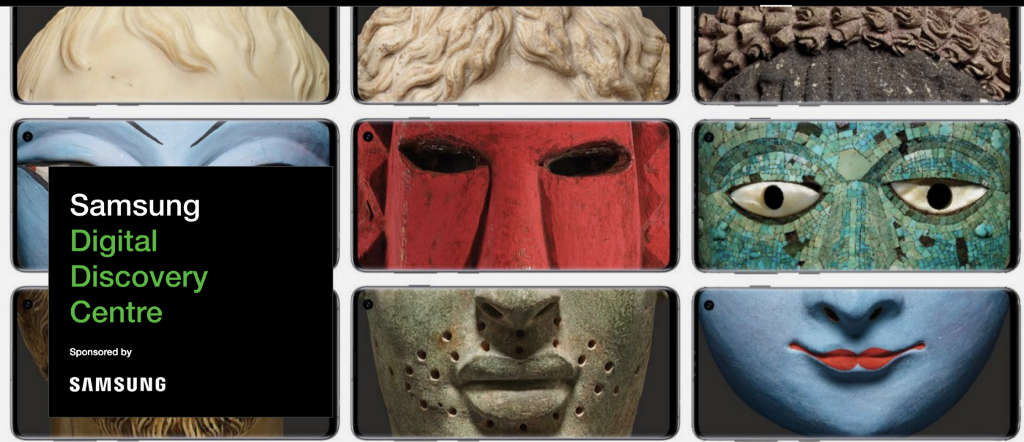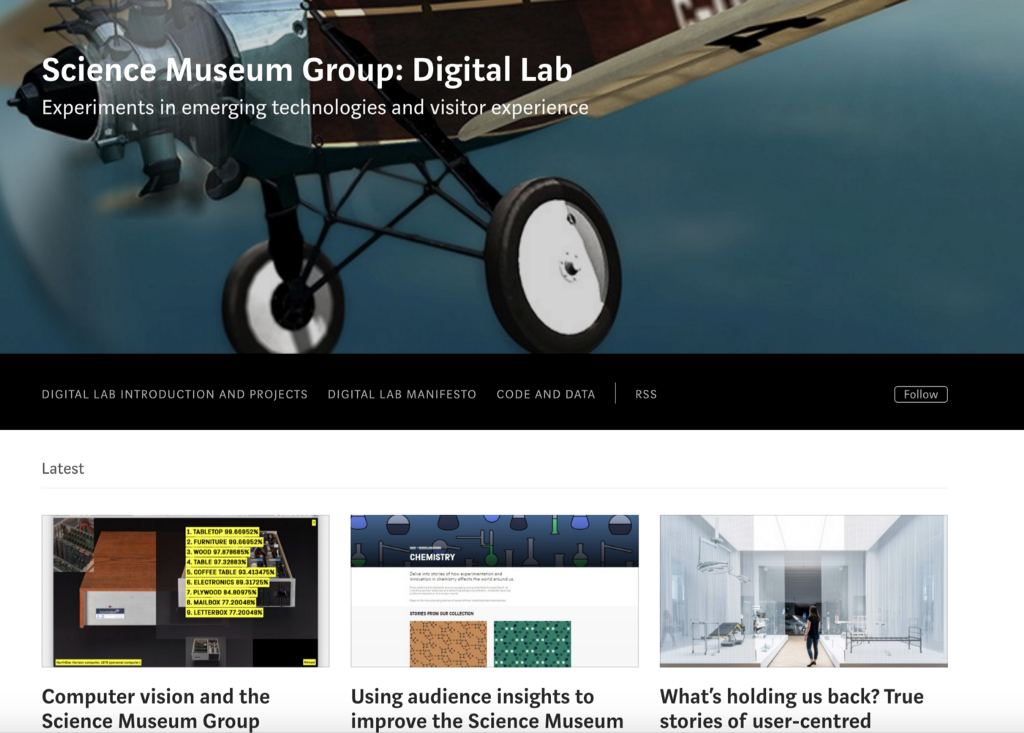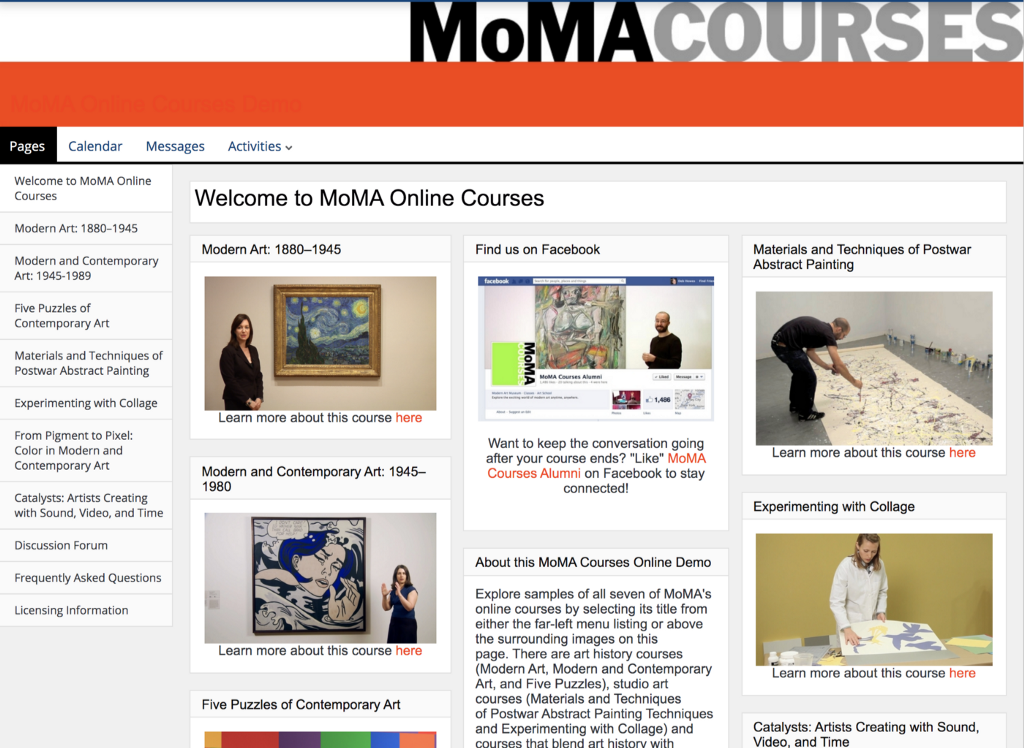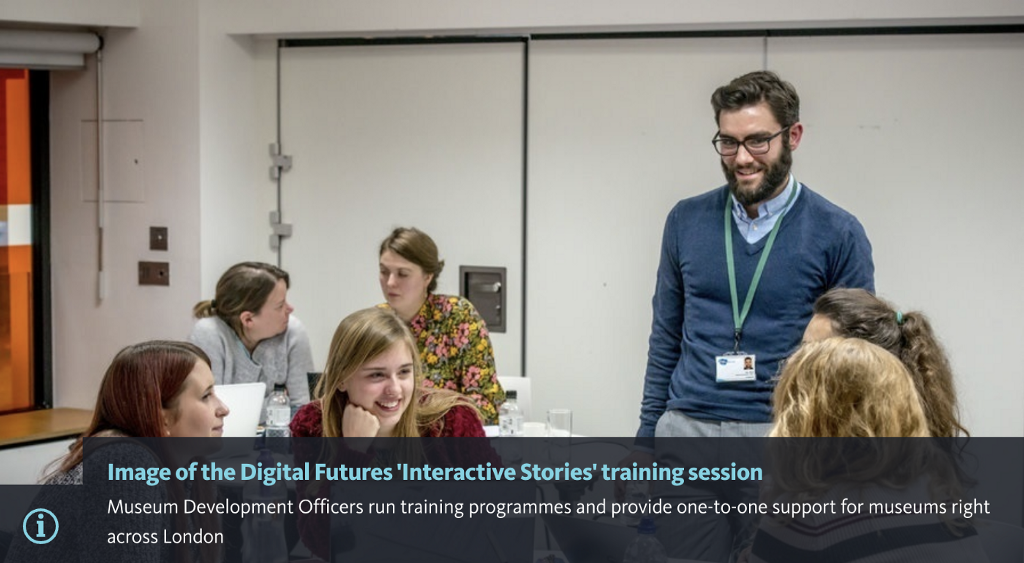
Museum as a Space for Digital Learning
August 19, 2020 - All
March 4, 2020
Over time, museums have sought to expand and reinforce their educational function, in line with their role as social institutions. Education is one of the main roles of museums today, and they offer a wide range of educational programs for students beyond the classroom and lifelong learning opportunities for adults. Today’s major societal trend, digitization, has had a major impact on museum education. In particular, since the 1990s, the development of the web and the Internet has led to the emergence of online museums, allowing people around the world to experience museums without actually visiting them. The development of SNS has also made the museum a platform for sharing online. In response to these changing needs, the digital learning programs of museums have also grown significantly. How will museums react and respond to this trend? What kind of strategies for museum education have they developed?

Digital learning at the museums
Many major museums around the world have a digital studio or lab in-house. There are many educational programs that are designed for the use of digital tools or which consist of the concept of a digital museum, making them more effective for digital-savvy users with a new sense of learning. For example, The Samsung Digital Discovery Centre at the British Museum offers free digital activities for schools and families. Visitors can participate in interactive workshops, using digital technology to explore the collection. There are many digital sessions, such as virtual visits and digital self-led sessions. In the Digital Session, Kids can learn about coding by identifying African animals represented in the museum’s collection and photograph their visit to the Africa galleries. All the programs’ designs are based on the curriculum. Museums provide digital devices, such as tablets to participants so they can join and participate in programs. There are also programs for family activities such as the Samsung Great Court Games, where families can play digital games to solve challenges and explore trails that lead participants to unexpected places in the museum. These programs are expected to give museum visitors the opportunity to learn about the digital context naturally and to actively experience the museum’s collections and spaces.

London’s Science Museum Group also runs a Digital Lab to provide opportunities for experiments in emerging technologies and visitor experience. The Science Museum Group is a collection of British museums, comprising: The Science Museum in South Kensington, London The Science and Industry Museum in Manchester, The National Railway Museum in York Locomotion in County Durham, The National Science and Media Museum in Bradford, and The National Collections Centre Museum in Swindon, Wiltshire. In Spring 2017, the Science Museum Group launched its Digital Lab Initiative to respond to the rapidly evolving digital landscape through a suite of initiatives within a short timeframe. The lab held hack days, undertook 3D digitization of objects in the Mathematics gallery, created a suite of 3D object learning resources for teachers, and produced the Group’s first VR experience.
According to the lab’s manifesto presented on the website, the main goal of the Digital Lab is to explore how museums can fulfill their missions in the digital age. The lab also shares open code and datasets so people can access the museum collection freely. For example, the Science Museum, which is a member of the Science Museum Group, hosts a wide range of digital or technologies themed learning programs, fitting its reputation as one of London’s top museums. The exhibitions present their themes with various technologies, such as immersive installations and virtual realities, so visitors learn about the museum’s collection in the context of technologies. The museum also hosts in-house digital library services. London Science Museum offers online classroom resources for educators, and people can explore the museum’s collection, complete puzzles, or learn about various communication networks and information ages through games and apps. These games are available online and people can try them with a mobile phone or iPad anywhere in the museum. The museum has even developed an ‘Audio Eyes’ app designed for blind visitors. It unlocks audio descriptions in a selection of major galleries at the Science Museum in London, describing the space, and tangible objects. The app responds to users’ movements in the gallery so people can explore by themselves. Digital learning at the museum is more and more accessible these days.
Online course provided by the museums

‘MOOC’ movement enables people to learn about art, or even digital skills through online courses offered by museums. ‘MOOC’ stands for Massive Open Online Course and it’s accessible, free, and interactive. MoMA’s free Massive Open Online Courses (MOOCs) provides direct talks from artists and designers, presenting works in the collection and exhibitions, and inviting a community of learners. People can enroll any time and complete the course at their own pace. Some courses are available in Mandarin. This type of course can reach new audiences, bring the museum experience to people on a global scale, and enhance a global network among museum professionals. MOOCs can accelerate the mainstreaming of museum content into education. Partnering with Coursera, alongside universities such as Brown, Columbia, Duke, and Stanford, raises the profile of the museum’s educational role and MOOCs provides a way to scale up the impact museums have on education overall (Elizabeth Merritt, 2013).
Museum Sector Alliance(Mu.SA) opened a series of online learning opportunities to develop essential digital skills for museum professionals last year. The ‘Essential Digital Skills for Museum Professionals’ course aimed to support museum professionals in developing their digital skills and abilities, so as to promote collaborations and increase productivity for digital museums. Participants should follow modules to complete a set of digital and transferable competences and communicate with global fellows over a period of eight weeks.

The London Museum also has provided an online learning course to ensure that museums are able to better harness the potential of digital technology and digital engagement. Through the training program, the London Museum Development delivers at least 12 courses each year aimed at developing the digital skills of London’s museums. These courses have been designed and tailored for London’s museums, based on the feedback from the Training Needs Analysis of the London non-national museum sector. The Digital Futures training program consists of sessions focused on social media and marketing, digital content creation, and digital ‘back of house’. [1]
What can museums provide in the future?
‘Digital literacy needs to be achieved across the board, especially in the context of museum leadership.’ — (NMC Horizon Report 2015 Museum Edition, p.24)
The acting cases mentioned above show how museums provide digital and offline educational opportunities for their audiences. They are examples of the digital strategy of the museum as an educational and social institution. The museum’s digital learning programs will continue to expand in the future. What principle should guide museums in the future then?
As a place where people can experience visual resources and in order to become a leader in education in an increasingly digital society, museums should embrace not only the concept of ‘digital learning,’ but also ‘digital visual literacy’ as a part of their educational programs. This reorganization process of defining what digital learning means to the museum will change the position of the museum in society in the digital era.
Reference List
NMC Horizon Report 2015 Museum Edition
https://library.educause.edu/~/media/files/library/2016/1/2015hrmuseumEN.pdf
Science Museum — Digital Strategy 2015–2017 https://group.sciencemuseum.org.uk/policies-and-reports/digital-strategy/
Museums in the Digital Era | Mu.SA Project MOOC
https://cultureactioneurope.org/museums-in-the-digital-era-mu-sa-project-mooc/
MOOCs and the Museum
https://www.aam-us.org/2013/05/02/moocs-and-the-museum/
Digital Futures training programme
https://www.museumoflondon.org.uk/supporting-london-museums/training-and-skills/digital-futures
[1] Digital Futures: London Museum Development. Museum of London. museumoflondon.org.uk/supporting-london-museums/training-and-skills/digital-futures. Accessed 2 March.2020
Museum as a Space for Digital Learning was originally published in Museums and Digital Culture – Pratt Institute on Medium, where people are continuing the conversation by highlighting and responding to this story.